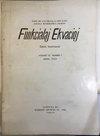Global Existence and Decay Properties of Solutions for Coupled Degenerate Dissipative Hyperbolic Systems of Kirchhoff Type
IF 0.7
4区 数学
Q2 MATHEMATICS
引用次数: 0
Abstract
Consider the initial-boundary value problem for coupled degenerate dissipative hyperbolic systems of Kirchhoff type: rho u(tt) - (parallel to del u(t)parallel to(2) + parallel to del v(t)parallel to(2))(gamma)Delta u + u(t) = 0, rho v(tt) - (parallel to del u(t)parallel to(2) + parallel to del v(t)parallel to 2)(gamma)Delta v + v(t) = 0, with homogeneous Dirichlet boundary condition and rho > 0 and gamma > 0. When either the coefficient rho or the initial data are appropriately small, we prove the global existence theorem by using several identities and the energy decay. Moreover, under the same assumption for rho and the initial data, we derive the decay estimates of the solutions and their second order derivatives.Kirchhoff型耦合简并耗散双曲型系统解的整体存在性和衰减性质
考虑Kirchhoff型耦合简并耗散双曲系统的初边值问题:rho u(tt) -(平行于u(t)平行于(2)+平行于v(t)平行于(2))(gamma) δ u + u(t) = 0, rho v(tt) -(平行于u(t)平行于(2)+平行于v(t)平行于2)(gamma) δ v + v(t) = 0,具有齐次Dirichlet边界条件且rho > 0且gamma > 0。当系数或初始数据都足够小时,我们利用几个恒等式和能量衰减证明了全局存在性定理。此外,在对rho和初始数据的相同假设下,我们导出了解及其二阶导数的衰减估计。
本文章由计算机程序翻译,如有差异,请以英文原文为准。
求助全文
约1分钟内获得全文
求助全文
来源期刊
CiteScore
0.80
自引率
0.00%
发文量
6
审稿时长
>12 weeks
期刊介绍:
Information not localized

 求助内容:
求助内容: 应助结果提醒方式:
应助结果提醒方式:


